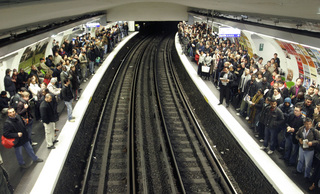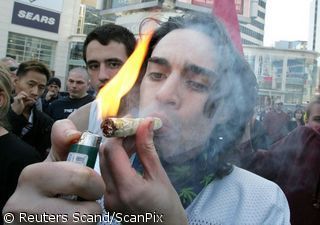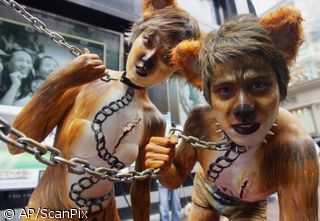Tuesday unity celebrations mark country_s troubled century.
Published:
8 November 1999 y., Monday
It is indicative of today_s Germany that 10 years after the collapse of a divide that separated individual German families, towns and even two enemy German nations for three decades - celebrations marking the historical fall of the Wall on Tuesday will be low-key. The government is making Tuesday_s anniversary reflective - with wreath laying, commemoration ceremonies and speeches. There are no fireworks, though there will be an "illumination" - tracing a ring around Brandenburg Gate where the Berlin Wall stood for 28 grim years. There is no obvious opportunity for that unbridled German cheer still reserved for the likes of the annual Oktoberfest beer festivals. One reason for the subdued approach to this 10th anniversary is the sheer magnitude of the event. There is also a desire, on the part of the German authorities, to remember those who died trying to escape to freedom from the Communist east, as well to fete a unified, free Germany. But, there is another reason, in fact, there are millions of reasons, personified by Gerhard Kompish, a machine-shop foreman in his 40s from East Berlin and other "Ossies" like him who, 10 years after their police state fell with the Wall, remain bitter, frustrated, and impoverished.
When NBC News interviewed Kompish 10 years ago, he was already worried. The Wall had just fallen, and many of his metal workers had abandoned his workshop to seek more lucrative employment in the West. Kompish welcomed reunification, but feared the economic turmoil that lay ahead. Today, the chief machinist says the German "dream of unification" has become a nightmare. Rents are high, forcing many businesses to go bust. Facing bankruptcy himself, Kompish has moved his shop to Berlin_s tattered outskirts. The business now survives on a shoestring.
Copying, publishing, announcing any information from the News.lt portal without written permission of News.lt editorial office is prohibited.
The most popular articles
 75 years after Moscow first opened its underground train system, Muscovites can ride a restored vintage train.
more »
75 years after Moscow first opened its underground train system, Muscovites can ride a restored vintage train.
more »
 A glacier melt threatens to cause massive flooding and destroy a centuries old monastic fortress in the remote country of Bhutan.
more »
A glacier melt threatens to cause massive flooding and destroy a centuries old monastic fortress in the remote country of Bhutan.
more »
 What do countries as geographically diverse as Saudi Arabia, Uganda and Jamaica have in common? All of them criminalised homosexuality.
more »
What do countries as geographically diverse as Saudi Arabia, Uganda and Jamaica have in common? All of them criminalised homosexuality.
more »
 Human rights is a key issue for the European Parliament and MEPs Monday took a first look at what the European Union did last year, when they discussed the EU annual report on human rights in the world.
more »
Human rights is a key issue for the European Parliament and MEPs Monday took a first look at what the European Union did last year, when they discussed the EU annual report on human rights in the world.
more »
 Researchers found high levels of mecury in a Japenese dolphin-hunting town, but say the mecury has no ill effects.
more »
Researchers found high levels of mecury in a Japenese dolphin-hunting town, but say the mecury has no ill effects.
more »
 Crowds of Mexicans marched peacefully through the capital city on Saturday demanding the legalisation of marijuana.
more »
Crowds of Mexicans marched peacefully through the capital city on Saturday demanding the legalisation of marijuana.
more »
 Prisoners are reported to have dramatic improvements in behaviour after pets are introduced in a new scheme.
more »
Prisoners are reported to have dramatic improvements in behaviour after pets are introduced in a new scheme.
more »
 Israeli Ultra-Orthodox MPs are lining up against activists proposing a total ban on furs, saying traditional fur hats are an important part of their religious tradition.
more »
Israeli Ultra-Orthodox MPs are lining up against activists proposing a total ban on furs, saying traditional fur hats are an important part of their religious tradition.
more »
 EU Member States should organise social protection, including at least 14 weeks' maternity allowance, for self-employed women and self-employed men's wives or life partners, in accordance with national laws, said the Women's Rights Committee on Tuesday.
more »
EU Member States should organise social protection, including at least 14 weeks' maternity allowance, for self-employed women and self-employed men's wives or life partners, in accordance with national laws, said the Women's Rights Committee on Tuesday.
more »
 How are the European Parliament, the European Commission and other parts of the European Union supposed to interest people and explain their work?
more »
How are the European Parliament, the European Commission and other parts of the European Union supposed to interest people and explain their work?
more »